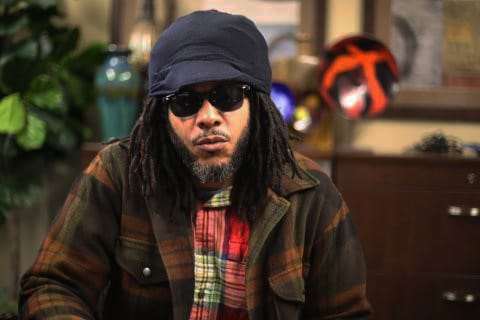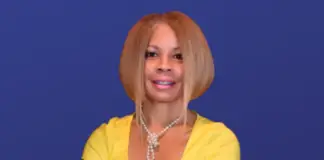
by Kali O’Ray, executive director of the San Francisco Black Film Festival
We have left no legacy behind in the Fillmore. I’m telling you that in 10 to 15 years the only way you’re going to know that this part of San Francisco used to be Black is by looking at the bricks, or by the tour guides on buses that tell you, “This used to be the great jazz district.”
But this area was the Chitlin’ Circuit. When Black people in the United States decided to settle in California, they either came to Los Angeles or to San Francisco’s Fillmore district … and I mean everybody. We were thriving and now we’re not even on the map anymore.
What’s left for us here? Look at the state of Fillmore now. We lost it all, and it’s happening everywhere.
It always happens in the same format. The first public housing projects in the United States of America were in Atlanta called Bowen Homes. When they closed it down, they told the people, “We’re going to rebuild this really nice place. It’s going to be brand new and you can come back.”
But by the time they rebuilt it, they also pulled out the red tape. And people couldn’t afford to move back. This dispersed us even more. Now we are so scattered and have had to assimilate so much that we are just everywhere. Not that that is all bad. We do need to assimilate some, but it’s cost us.
We need to start investing in ourselves. We’re going to always create music. We’re going to always start the hottest trends. We have that part down. And now, it’s the time to start setting up structures and setting up businesses.
Now, I’m talking about economics. More of us need to become entrepreneurs and build businesses to establish a legacy where you don’t have to depend on somebody else to give you a job. We’re just giving our money to anybody and it’s hard to grow like that when we live in a capitalist society.
Whether you like it or not, you need to have money and you need it in order to participate. We need to start investing in ourselves. We’re going to always create music. We’re going to always start the hottest trends. We have that part down. And now, it’s the time to start setting up structures and setting up businesses.
We must plan to leave something behind for the kids who are coming up and make sure they learn about themselves. As a parent, you have to make a Black child feel good about being a Black child because so much of the world is telling them that they’re nothing and that there’s not much of a future for them. You can’t expect school to fill the voids.
If you look at the news, it’s always negative and this is how the world looks at us. Even if you start picking out Black role models, you’ll notice that a lot of them are entertainers. So we make sure our kids are playing some kind of sport because we think that, as a Black man, you got to be an entertainer to make big money. That is not true.
Stop pushing them into football. If they’re good, they’re good, but they can also start a business. Yes, we’re always going to entertain. It’s in our blood, but dig deeper for the next generation.
I would like to see us change focus. Tell the youth to go create something. No, creating something is not easy. Either way you’re going to struggle, so you might as well struggle for four or five years building something that will be yours.
You can start with something simple, like teaching kids how to use a camera. That’s what I do.
The San Francisco Black Film Festival is the thing that keeps me going. We really need it badly. People need to see these stories, these positive roles that we do play as opposed to the stereotypical negative Hollywood versions. To most of the nation, even to the world, San Francisco still means something. The Black Film Festival allows the world to see us in a different light than what’s normally portrayed.
This statement and photo, recorded in January 2016, are from an interview by curator Jarrel Phillips for “I Am San Francisco: Black Past and Presence,” a highly acclaimed traveling exhibit of 45 filmed and transcribed interviews in San Francisco. They are republished with permission from Reimagine.
On Aug. 7, 2020, Kali O’Ray joined Ave Montague, his mother and the founder of the San Francisco Black Film Festival, and all the other ancestors following a sudden stroke and heart attack. This statement gives us more insight into a great leader, friend, colleague and comrade gone far too soon.




